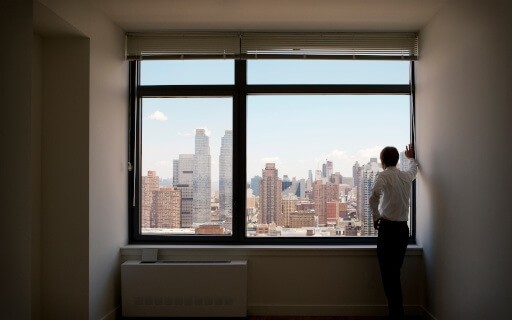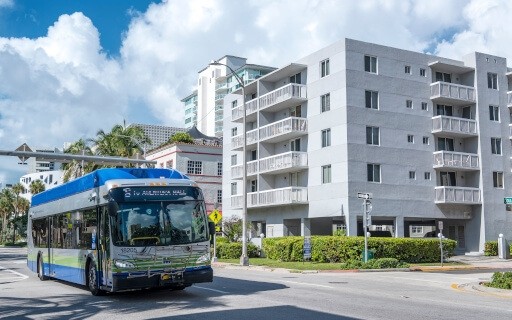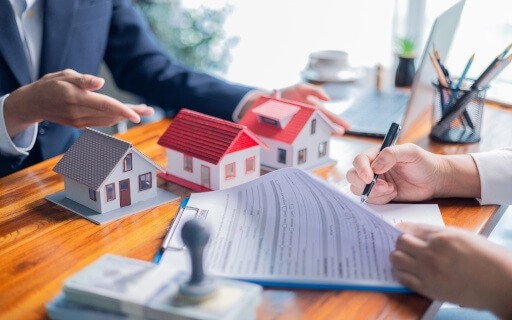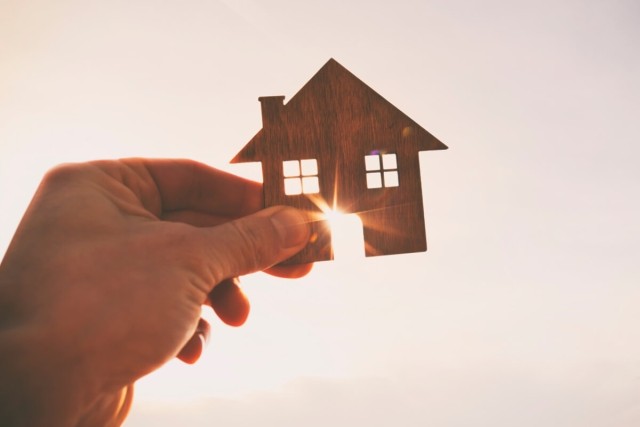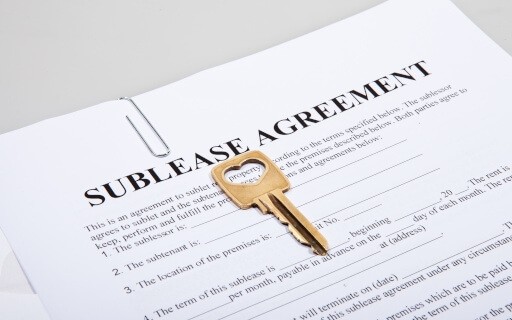Natural disasters can come out of nowhere. If your rental property is in the line of fire, it’s important to prepare yourself, your property, and your renters for potential risks. Otherwise, you might be susceptible to property damage, financial loss, and health/safety issues if disaster strikes.
Educating yourself on natural disaster preparedness and establishing a property maintenance routine are the best ways to safeguard your rental from severe weather. From routinely updating electrical fixtures to learning local emergency protocols, rental upkeep and education will be your best bets at protecting your property and, more importantly, your renters from danger.
Read below to learn more about how to protect your rental property from natural disasters.
Understanding the Risks: Natural Disasters and Rental Properties
Regardless of location or local climate, you should always be on high alert for severe weather and environmental hazards. Every region, from coastal cities to wooded neighborhoods, has its own set of risks to consider. As a landlord, your first step in mastering natural disaster protection for rentals is to understand your unique risks.
Depending on your rental’s location, you might need extra preventative measures to ensure its longevity and protection. For example, if your property experiences harsh winters, you might have to spend extra time or money on winterizing your unit. Meanwhile, rentals in warmer climates might require more focus on HVAC and heat protection. The extent of your rental maintenance will depend on your specific needs. Understanding these needs will allow you to weigh your risks and determine the necessary measures to take for rental protection and upkeep.
The Basics of Disaster Preparedness for Rental Properties
Once you’ve weighed your risks, your next step is to develop a comprehensive natural disaster preparedness plan. This plan should cover all property protection basics, from preventative maintenance to landlord insurance. The goal here is to be as thorough as possible to account for any and every potential disaster risk. Even if you’re in a relatively low-risk area, we recommend having a disaster plan ready. Trust us – you’d rather be safe than sorry!
Rental Maintenance and Upkeep
Regular maintenance and rental upkeep are your first line of defense against natural disasters. Routine maintenance ensures that your home’s foundations, appliances, and structural systems meet industry standards. This way, if you spot a potential issue, you can make repairs before problems escalate into more extensive projects. Generally, it’s best to take care of routine maintenance during move-in and move-out periods. If you’re in between renters, take advantage of your vacancy period by scheduling routine maintenance or making quick home upgrades. This way, you can welcome new renters into a fresh, updated space with a low risk of sudden repairs or maintenance.
If tenured residents occupy your rental, you can stay on top of property maintenance through routine inspections. Landlords perform routine inspections to get a firsthand account of their property’s condition. If they spot a potential issue with the property, the landlord can then determine whether the problem is harmless wear and tear or something more serious. We recommend following a comprehensive rental walk-through checklist during regular inspections to ensure you cover all of your bases. Some items you should always check are household appliances, septic systems, HVAC, roofing, doors and windows, and smoke detectors.
Emergency Supplies and Equipment
One of the best ways to ensure renter safety is to equip your property with emergency supplies and equipment. Not only will these tools protect against severe weather and natural disasters, but they will also mitigate run-of-the-mill home mishaps.
For example, supplying a home fire extinguisher will help protect renters from both man-made and natural fires. Fire extinguishers and smoke and carbon monoxide detectors are standard safety supplies provided in rental homes and apartments. Depending on the property, you might also provide a map and an emergency evacuation plan. These, along with renter-purchased tools like snow shovels, flashlights, and first aid kits, will protect your residents and property from unexpected accidents or natural disasters.
When supplying your rental with safety equipment, don’t forget to check your state and local rental laws to ensure you meet local safety standards. Failing to meet these protocols could put your renters at risk, which, in some instances, could motivate a small claims lawsuit. Remind yourself of this risk when equipping your home with emergency supplies and equipment. The last thing you want is a renter taking you to court!
Communication Plans with Tenants
A strong line of communication supports a good landlord-renter relationship. With established rapport and mutual respect, landlords and renters can work together to tackle unforeseen circumstances like natural disasters. As a landlord, your residents should feel comfortable contacting you in case of emergencies, maintenance repairs, or other concerns. Likewise, you, the landlord, should also feel comfortable contacting your resident for urgent matters.
Right away, you should establish a preferred communication platform with your renter where you can correspond about important notices, property updates, maintenance projects, and more. This way, in case of natural disasters or other emergencies, you can quickly contact your renter to ensure both their and the property’s safety.
Building trust between you and your renter is easy when you use Apartments.com’s suite of Renter Tools. You can easily communicate with renters to streamline maintenance requests with our rental management toolbox. When it comes to natural disaster support, you can use our tools to manage repair expenses, track maintenance progress, and communicate with renters about your next course of action.
Insurance and Financial Preparedness
Obtaining landlord insurance is not a step you want to miss when preparing for natural disasters. Frankly, you’ll want to get insurance from the get-go before signing a lease agreement. Landlord insurance protects your rental from property damages, losses, and liabilities. Without it, you leave yourself extremely vulnerable to financial loss.
Every landlord’s insurance policy looks different. Often, location is the major factor separating one policy from another, especially when it comes to natural disaster coverage. For example, if your property is located on the coast, you are more likely to get flood coverage than a landlocked property owner. Similarly, someone in a dry, desert-like climate will likely opt for wildfire insurance, which might not be the case for a landlord in a humid, rainy area.
While a thorough insurance policy is a strong safety net, you should still dedicate a budget toward natural disaster-related repairs and maintenance. Regardless of whether you’re in a high-risk area, it’s always best to plan for emergency expenses. As a landlord, you must learn to expect the unexpected. So, if surprises stress you out, creating an emergency property maintenance fund is your best shot at maintaining peace of mind.
Maintenance and Repair Tracking
Depending on their severity, natural disasters can cause some serious damage. If your property takes some heavy hits from a natural disaster, you’ll likely have many maintenance tasks to complete. Keeping track of several repairs at once can be difficult for a landlord, particularly if they lack the tools or resources to monitor repair progress.
At Apartments.com, we offer user-friendly maintenance management tools to simplify property upkeep. When using our software, you’ll find it easier than ever to track maintenance requests and communicate with renters about repairs, which will be especially helpful for managing post-disaster fixes. Our Maintenance Management tools also provide a space to store repair records and expenses, which can be useful for post-disaster insurance claims.
Budget Management
Property management involves a lot of budgeting. While profit might be the first thing on your mind when renting out a home, it’s important to remember your financial obligations as well. To successfully earn a profit on your rental, you’ll need to track your expenses diligently. These rental expenses will range from mortgage interest and property tax to repair and operating expenses. If you live in a disaster-prone area, expect to spend a little extra on rental upkeep and maintenance. However, the good news is that many of these expenses can be written off when you file taxes. Review IRS guidelines carefully to learn about what you can claim and how.
Apartments.com simplifies budget management with our rental income and expense tracking tools! With this user-friendly tracking platform, you can document and categorize rental expenses by tax category. That way, when tax season comes around, you can easily export them for filing purposes.
Natural Disaster Resources and Support
Of all the precautions you can take for natural disasters, educating yourself and your renter is one of the most important. Upon their move-in, provide your renter with a list of resources about natural disaster management. Consider directing them to the Federal Emergency Management Agency (FEMA) or the National Weather Service for safety guidelines and disaster management tips. These resources will help them determine a course of action in case of natural disasters.
In addition to preliminary resources and support, you’ll also want to provide post-disaster aid. No matter how severe, a natural disaster can be traumatizing for both landlords and renters alike. The best thing you can do in this situation is support each other and work together to get things back to normal. In a recent study published by The Brookings Institution, researchers discovered a gap in disaster response for renters, rental properties, and other rental stakeholders. That said, landlords and renters must stick together to get the disaster relief they need to move forward.
Some examples of post-disaster aid shared between landlords and renters include rental relief programs, temporary housing assistance, and community resources and counseling. To access these resources for you and your residents, consult FEMA, the U.S. Small Business Administration, the Department of Housing and Urban Development, or other state and local emergency management agencies.
Protect Your Rental Property with Apartments.com
Safeguarding a rental property from natural disasters takes a lot of preparation and diligence. As a landlord, it’s important to understand the basics of disaster protection for rentals to ensure you are prepared for the worst. From tracking home repairs to managing your budget, you’ll want to cover all your bases in case a natural disaster strikes.
At Apartments.com, we offer an expansive suite of Renter Tools to help you achieve comprehensive natural disaster preparedness. From our expense tracking tools to our maintenance management services, our resources will help you confidently navigate rental property management in the face of natural disasters. Get started with Apartments.com to achieve ultimate natural disaster preparedness for your rental property.


